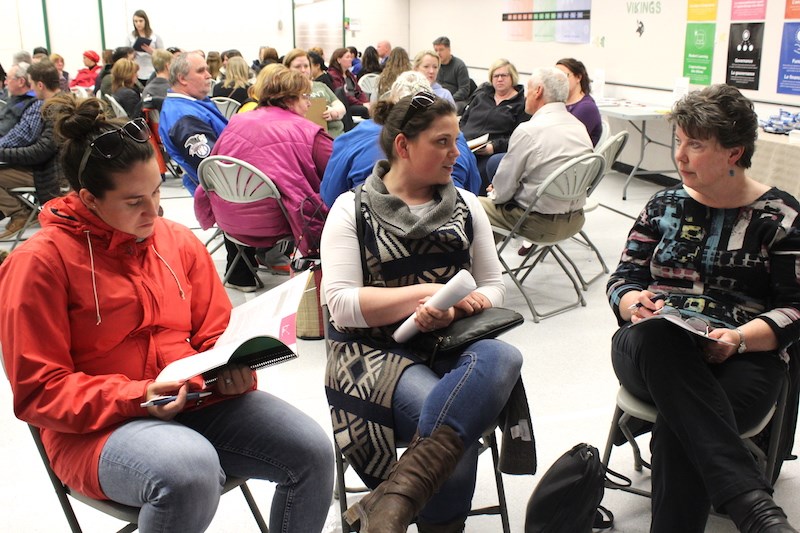As part of its comprehensive kindergarten to Grade 12 review, a Manitoba government commission hosted an interactive workshop at Westwood School April 25, where Thompson teachers and parents were invited to weigh in on the current state of the province’s education system.
Participants were divided into smaller round-table discussion groups, which covered topics ranging from class sizes to teaching resources to the unique needs of northern students.
While these discussion groups covered a lot of ground, a couple of overlapping themes emerged.
Many teachers are still frustrated with the provincial government’s decision to remove the 20-student cap on kindergarten to Grade 3 class sizes back in March 2017.
Teachers said they are being stretched thin and can’t give their students the proper attention they need to succeed academically.
Some schools don’t have the resources to successfully manage these class sizes, with one Deerwood teacher saying they have only a single educational assistant on staff.
Many teachers also said it is becoming harder to maintain academic standards, since parents get the final say on whether or not their children fail a grade.
This means they are being forced to pass students who aren’t ready to move on to the next level, which teachers say does nothing to prepare them life outside school.
The possibility of amalgamating school boards was met with a resoundingly negative response from participants Thursday night.
Most of the meeting attendees didn’t see any financial or logistical benefit to combining the School District of Mystery Lake (SDML) with other northern districts, since they feel the needs of students and teachers in Thompson are different from those of their counterparts in places like Churchill or Flin Flon.
Robyn Foley said that decentralizing the SDML would make her job as a high school English teacher more difficult, especially when she needs to talk with the school board trustees directly.
“If I have a question or a concern, or I need to do a presentation or seek out resources, I know who to talk to or at least who to start with,” she said. “We are a communication and a relationship business and then you’re taking communication and relationships out of the equation at the higher level. That doesn’t work.”
At the end of Thursday’s workshop, commission members collected participants’ written feedback for future study and analysis.
During the month of May, the education review commission will conduct similar interactive workshops throughout the rest of the province, with planned stops in The Pas, Brandon, Dauphin, Carman, Steinbach and Winnipeg.
The commission, which includes Thompson attorney Jill Quilty, expects to publicly release their final report and recommendations by March 2020.




